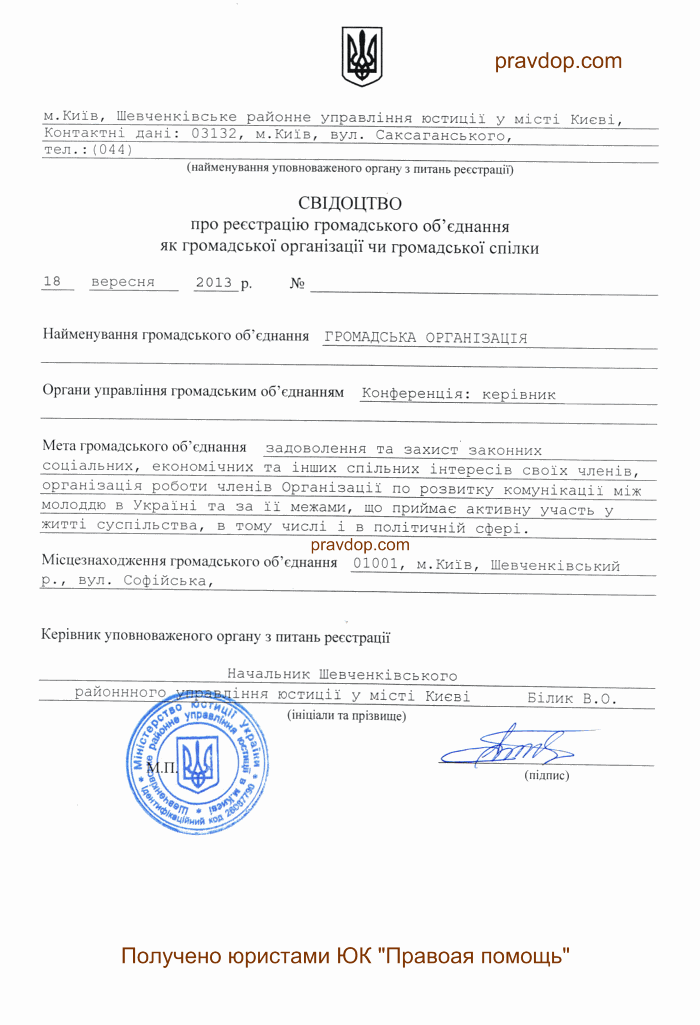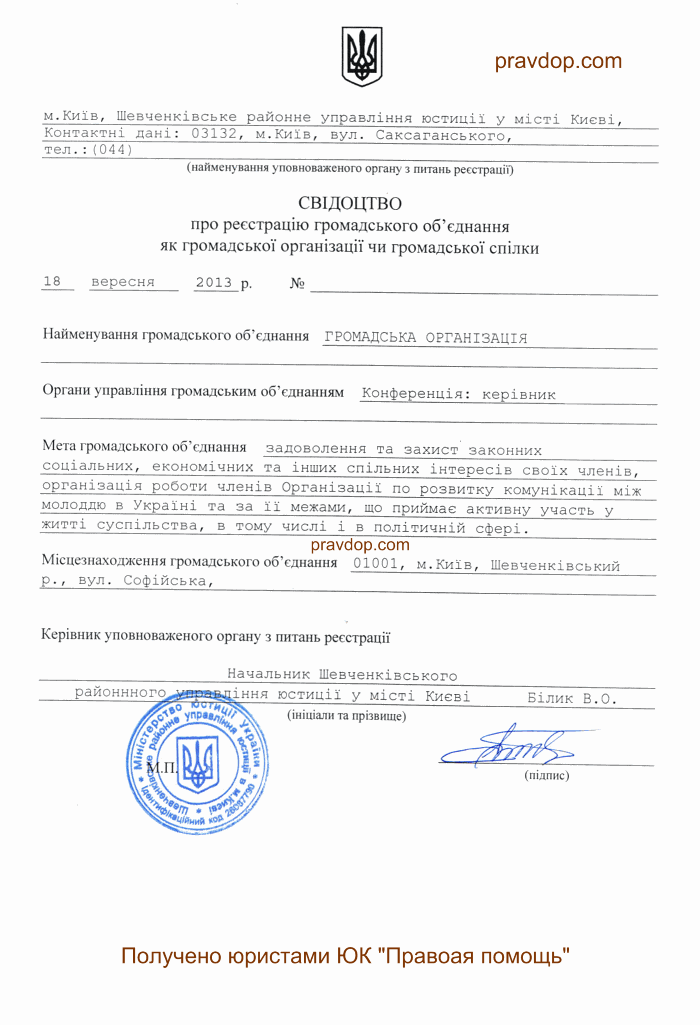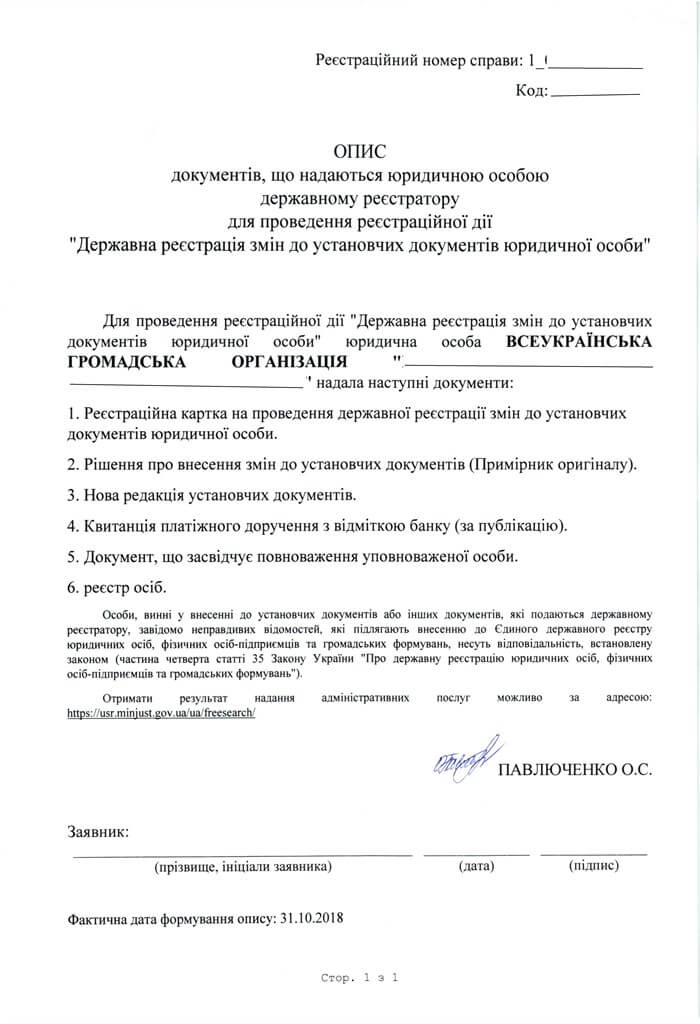Updating NGO Founding Documents: A Case from Legal Practice
Cost of services:
Reviews of our Clients
Amending the founding documents of a public organization often involves not only bureaucratic hurdles that can lead to delays, but also legal risks. What may seem like simple issues, such as errors in documents or improperly drafted protocols, can jeopardize the organization's legitimacy. Insufficient preparation for the process complicates matters, especially when there is a need to update the charter, change the legal address, and admit new members all at once.
In our law firm's practice, we often encounter cases that emphasize the importance of professional legal support for non-profit organizations. Today, we’ll share a case that clearly demonstrates the comprehensive approach needed to address legal issues in the development of a non-commercial organization. In this specific case, the organization approached us needing to amend its founding documents due to changes in its activities and growth.
You might also like: Amendments and Signing of the Charter: Who Has the Right to Sign and What Key Legal Aspects to Consider
What to Consider When Making Changes to the Founding Documents of an NGO
An active public organization approached us seeking comprehensive changes to its founding documents. The team was tasked with three main objectives:
- Amending the organization's charter.
- Changing the legal address.
- Admitting new members to the organization.
The clients understood that navigating all the bureaucratic procedures on their own could be quite complex. Therefore, they turned to us for professional assistance to avoid mistakes, delays, and ensure the legitimacy of the changes at every stage of the process.
Amending the Charter
The charter of a public organization is a foundational document that defines the organization's legal status, goals, objectives, structure, and operational procedures. Therefore, any changes to it must be justified and align with the evolving requirements of the organization. In this particular case, the need for amendments arose as a result of the organization's strategic development: it aimed to expand its activities, alter its organizational structure, and clarify its goals.
The process began with a thorough analysis of the current version of the charter. We conducted an in-depth consultation with the organization's leadership to understand all the nuances of the planned changes. Particular attention was given to ensuring the legal accuracy of each proposed amendment.
During the general meeting, we facilitated a collegial discussion and decision-making process. Every member of the organization needed to have the opportunity to express their opinion and participate in the vote.
You might also like: Legislation Regulating the Activities of Non-Governmental Organizations
Changing the Legal Address
Our clients, a non-governmental organization, also needed assistance in changing their legal address, which was linked to their expansion and the need for a new, more convenient space to carry out their activities. The first step was finding a new location. In some cases, organizations may only require a legal address without the need for an actual office.
A general meeting of the organization was convened to ensure that members supported the change of address—most voted "for," and the decision was recorded in the minutes. The decision was then formalized in the protocol, which serves as the official document confirming the address change.
This stage required particular attention. We helped our client prepare all necessary documents, including the meeting minutes with the decision on the address change, the application, and the updated charter.
Registration of New Members
Our clients also needed assistance in admitting new members to the organization. This process is delicate and multi-step, covering a variety of aspects. So, what does someone need to do if they want to join a public organization?
The first step is the person's willingness. The potential member must express their desire by saying, "I want to be a part of your team!" After this, they submit an application, indicating:
- Who they are.
- Why they want to join the organization.
- What they can offer to the organization (how they can contribute to the team).
- What motivates them to join.
The process of admitting new members was conducted transparently and legally. We developed a clear procedure for submitting applications, holding meetings, and voting. This allowed the organization to admit new members smoothly and per its charter, an essential step for its growth.
You might also like: Conferences of Public Organizations: Problematic Issues and Procedural Features
The Cost of Mistakes in Registration Changes and Why Legal Assistance is Important
The problems that arise during the registration of changes often stem from simple technical issues. It may seem insignificant, one extra letter or space, but for the state registrar, it is crucial and, as practice shows, it can be a decisive factor.
One incorrectly written letter in a surname, an inaccuracy in the details – and all the work may go to waste. Personal data is checked very carefully. If passport data does not match the data in the organization's documents, expect a prolonged struggle. Sometimes, a person changes their surname but does not update all their documents, which immediately provides grounds for suspending registration.
Legal risks are a separate issue. The registrar thoroughly examines whether the new provisions of the charter comply with the law. It often happens that an organization wants to expand its powers but does so incorrectly. Or attempts to establish mechanisms that may violate the rights of its members.
Procedural issues also matter. Imagine: you held a meeting, made a decision, but the protocol was done incorrectly. You didn't indicate the exact number of attendees, didn't record the results of the vote – and again, you have grounds for objections and a suspension of the process. Thus, thanks to our support, the client avoided all these risks:
- The organization's charter was successfully updated.
- The legal address was changed without complications.
- New members were admitted following all norms and procedures.
If your organization requires professional assistance in updating founding documents, changing the legal address, or registering new members, we are here to help.
Our team of lawyers guarantees that all documents will be prepared in accordance with the legal requirements and without errors. We carefully check personal and legal data, prepare meeting protocols, and handle every detail to ensure that the registration of changes is completed quickly and without unnecessary complications.
Contact us today, trust the complex process to professionals and be confident in the result!
Our clients








